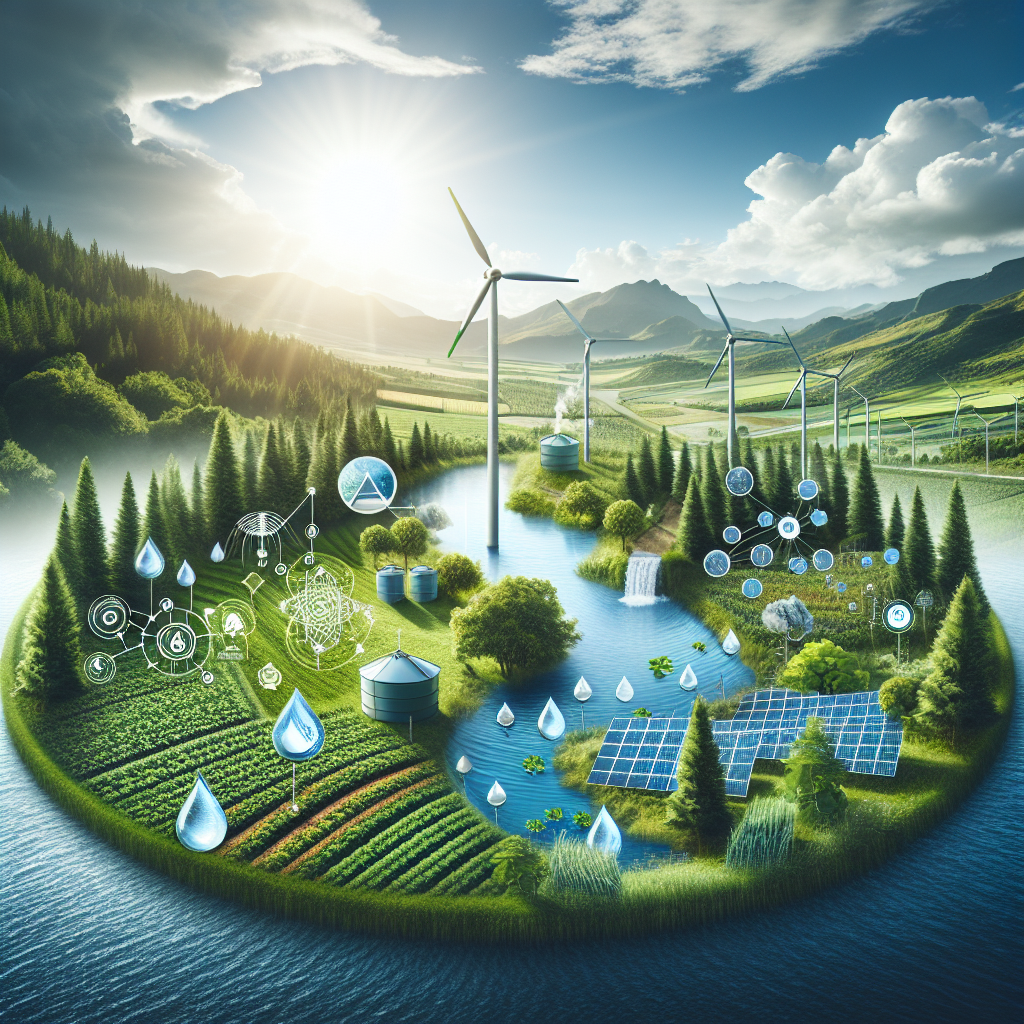The Future of Water: Strategies for Sustainable Conservation
Water, the sustainer of life on Earth, is under unprecedented strain. With the global population booming and climate change altering water patterns worldwide, the future of water security is a growing concern. The challenge we face is not just to conserve water but to do so sustainably, ensuring that future generations inherit a world where water scarcity is the exception, not the norm. This article explores innovative strategies and solutions aimed at sustainable water conservation, a crucial step towards a water-secure future.
Understanding the Challenge
Before delving into solutions, it’s essential to understand the multifaceted challenge of water conservation. The primary issues include overconsumption, pollution, inefficient agricultural practices, and climate change impacts. These factors contribute to the depletion of freshwater resources, making sustainable management more crucial than ever.
Strategies for Sustainable Conservation
1. Advanced Irrigation Techniques: Agriculture consumes around 70% of the world’s freshwater, but much of it is wasted due to inefficient practices. Adopting precision irrigation technologies, such as drip irrigation and soil moisture sensors, can significantly reduce water wastage, ensuring that crops receive precisely what they need.
2. Water Recycling and Reuse: Urban areas can play a critical role in water conservation by implementing systems for recycling and reusing wastewater. Technologies like membrane bioreactors enable the treatment of wastewater to a standard where it can be reused for irrigation, industrial processes, or even replenishing aquifers.
3. Rainwater Harvesting: Collecting rainwater reduces dependence on freshwater sources and mitigates the impact of urban runoff on natural water bodies. Simple systems can collect rain from rooftops for use in gardening or flushing toilets, while more sophisticated setups can treat rainwater for drinking.
4. Desalination Technology Improvements: Desalination, the process of removing salt from seawater, offers vast potential for augmenting freshwater supplies. However, it’s energy-intensive and expensive. Advances in renewable energy-powered desalination and more efficient membranes can make this technology a more sustainable option for water-scarce regions.
5. Natural Water Retention Measures: Restoring wetlands, reforesting watersheds, and practicing sustainable land management can enhance the natural retention of water, reducing the need for artificial storage and helping to maintain the health of aquatic ecosystems.
6. Public Awareness and Education: Sustainable water conservation requires a societal shift in how water is valued and used. Educational campaigns that focus on water-saving habits, the importance of protecting water sources, and the benefits of sustainable consumption can drive significant reductions in water waste.
7. Policy and Governance: Strong water governance frameworks are essential for implementing sustainable water management practices. Policies that incentivize water-saving technologies, regulate pollution, and manage water resources holistically can ensure that conservation efforts are effective and equitable.
The Role of Technology and Innovation
The future of water conservation is closely tied to advancements in technology and innovation. From artificial intelligence (AI) that predicts water usage patterns and optimizes distribution, to new materials that enhance water purification, technology can transform how we conserve and manage water. Embracing these innovations, while ensuring they are accessible across different socio-economic contexts, is key to sustainable water conservation.
The Global Perspective
Water conservation cannot be addressed in isolation. Given the interconnected nature of water systems, international cooperation and knowledge-sharing are vital. Global frameworks that support water conservation, protect shared water bodies, and provide aid for water-stressed regions are essential components of a sustainable future.
FAQs
Q: Why is sustainable water conservation important?
A: Sustainable water conservation is crucial for ensuring that future generations have access to clean, sufficient water. It’s not only about quantity but also about maintaining the health of ecosystems that support life on Earth.
Q: Can individual actions really make a difference in water conservation?
A: Absolutely. Individual actions, when multiplied across millions of people, can lead to significant water savings. Simple measures like fixing leaks, using water-efficient appliances, and reducing water waste can collectively make a big impact.
Q: How can we support water conservation in our communities?
A: Supporting water conservation can involve advocating for sustainable water policies, participating in local water conservation projects, and spreading awareness about the importance of water conservation. Community-based rainwater harvesting projects and educational programs can also play a significant role.
Q: What is the biggest challenge to water conservation?
A: One of the biggest challenges is changing longstanding habits and practices related to water use, both at the individual and industrial levels. Overcoming this requires a combination of education, incentives, and regulations that encourage more sustainable behaviors.
Q: Is desalination a viable long-term solution for water scarcity?
A: Desalination can be part of the solution, especially for coastal regions with limited freshwater resources. However, for it to be a sustainable option, technological advancements that reduce its energy consumption and environmental impact are necessary.
Conclusion
The future of water hinges on our ability to adopt sustainable conservation strategies today. While the challenges are significant, the solutions are within reach. By leveraging technology, fostering international cooperation, and promoting a culture of conservation, we can ensure that the vital resource of water is preserved for generations to come. The journey towards a sustainable water future is one we must embark on collectively, with urgency and hope.

